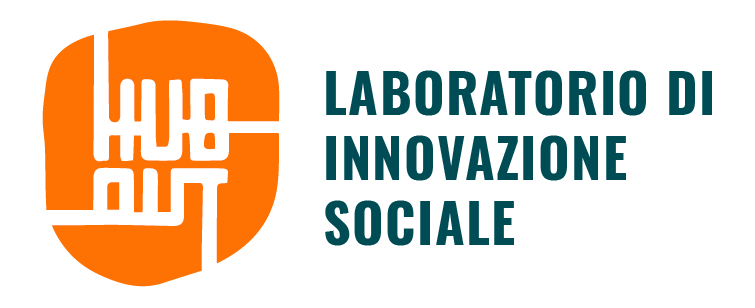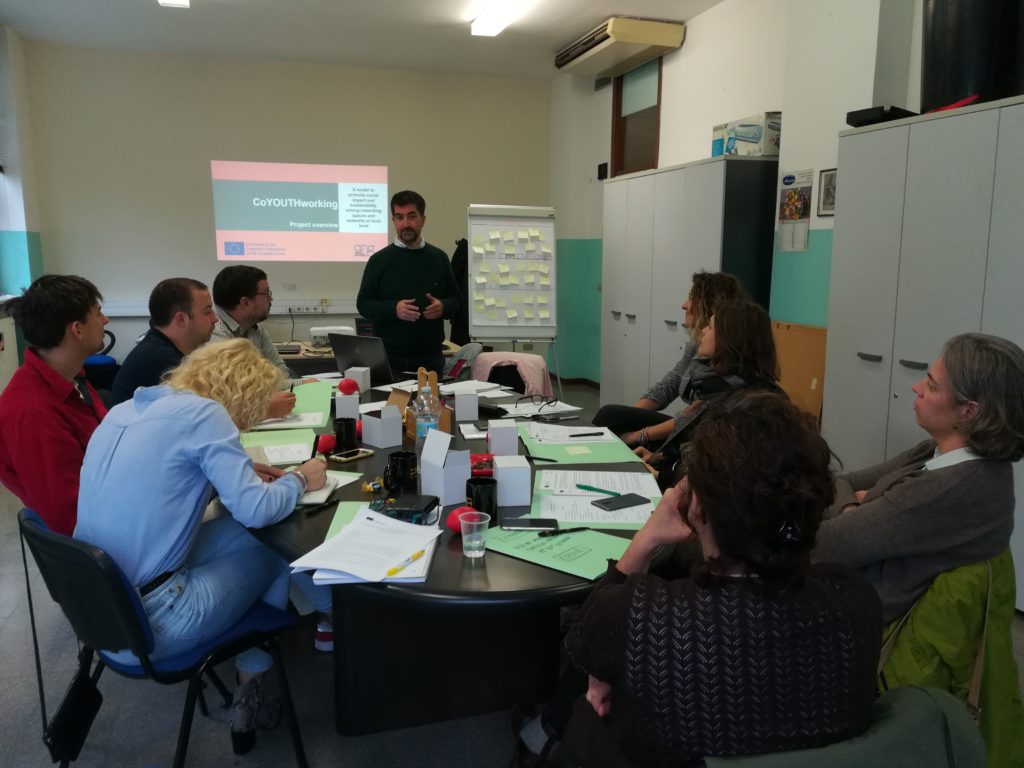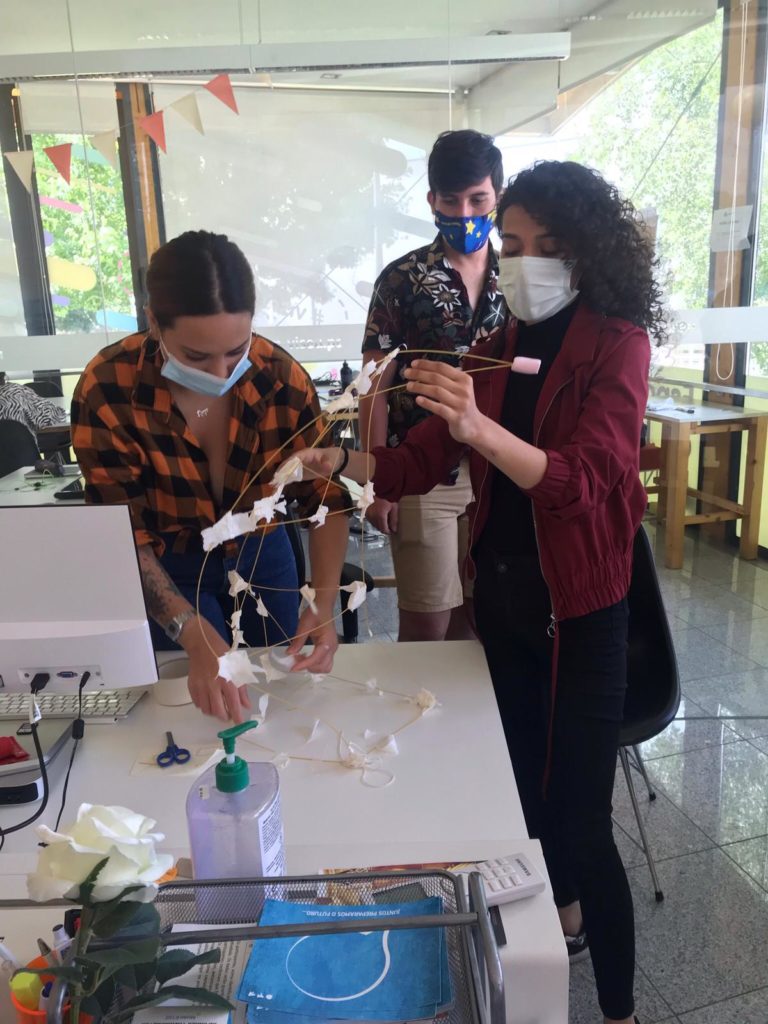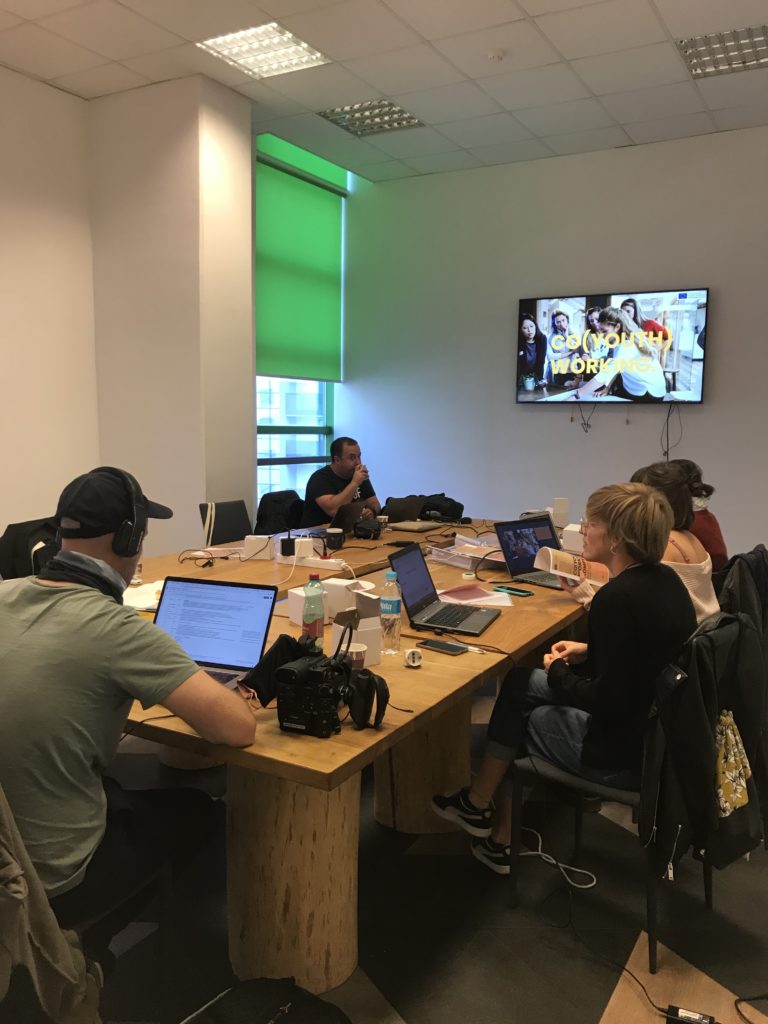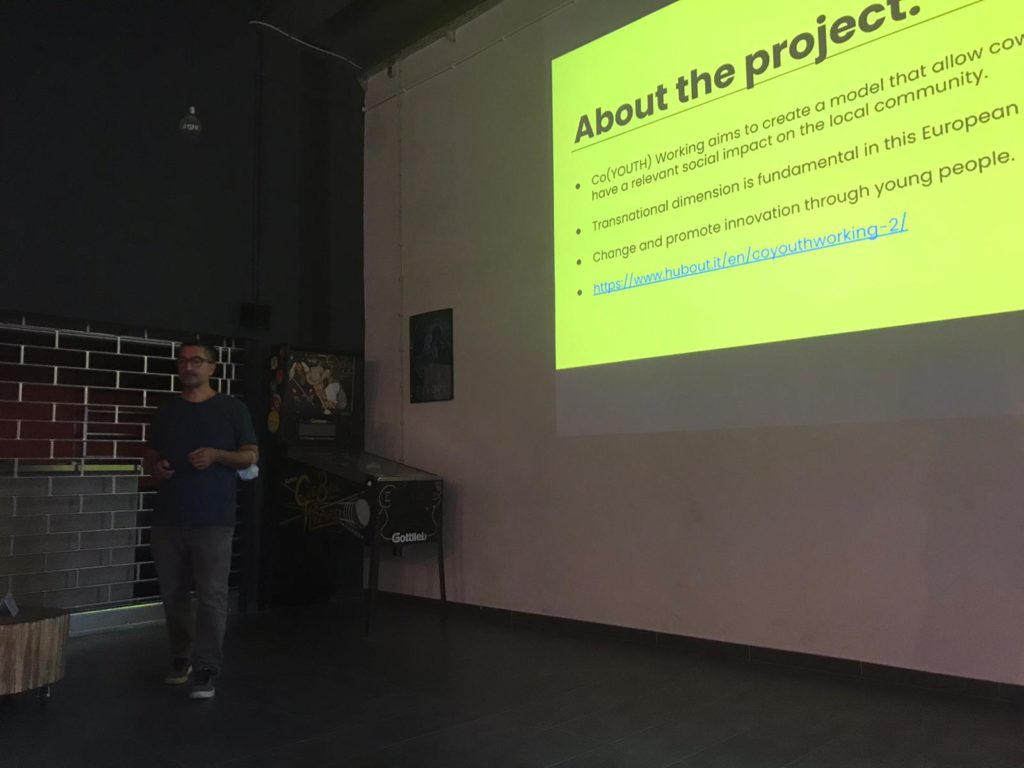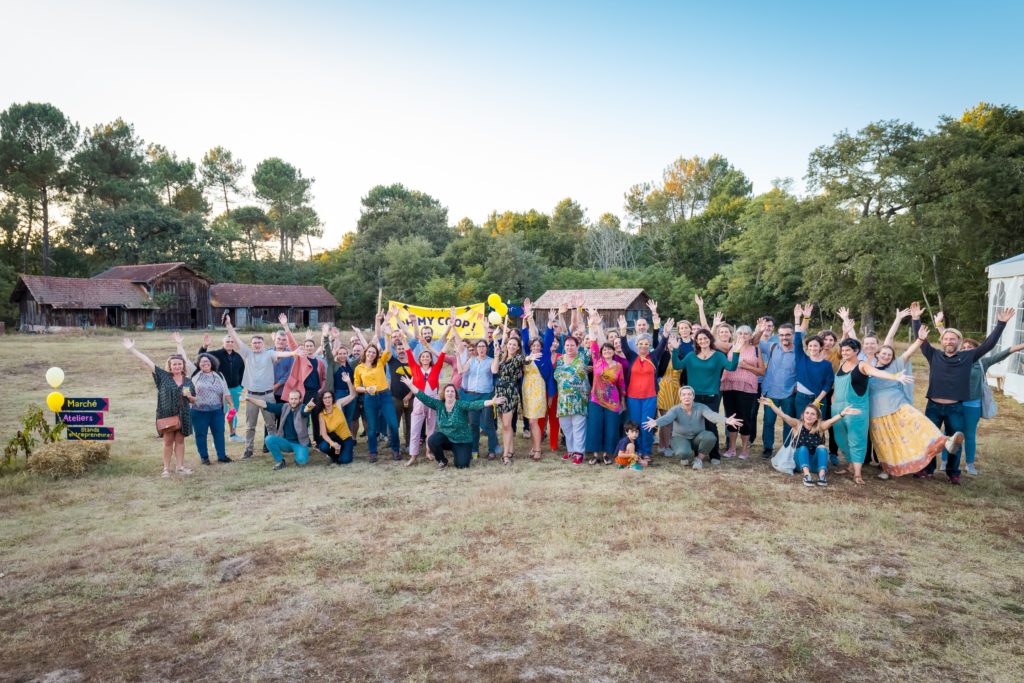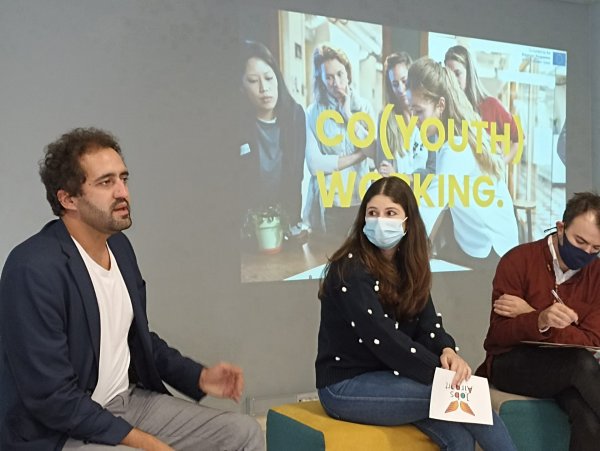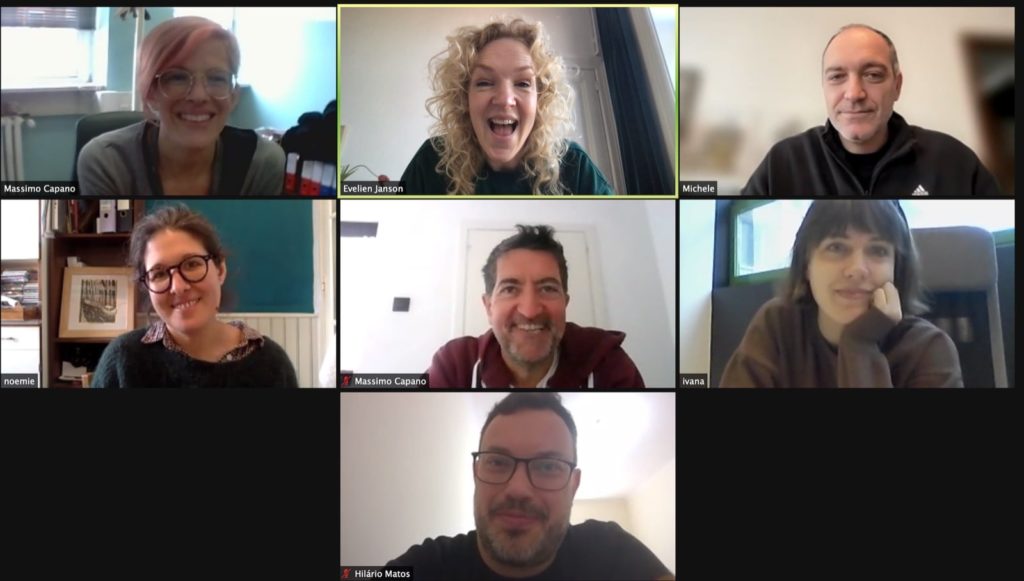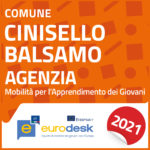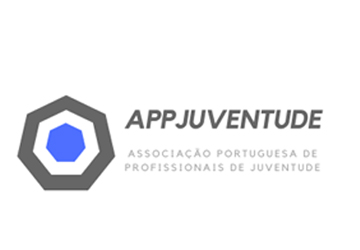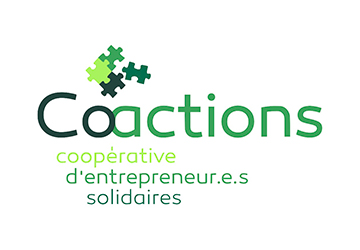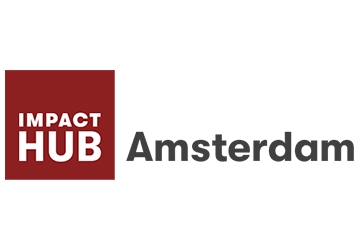How much do coworking spaces really contribute to the development of skills, to social and work inclusion of young people? How much and how do they manage to promote solidarity, protagonism, involvement and youth participation? What are the factors that could improve the effectiveness of the action promoted by these “new spaces” for young people?
The idea of Co(youth)working is to define guidelines that allow to increase the social impact of co-working spaces on the reference territory. These must enable coworking spaces to remain economically viable and support the effective development of young users’ entrepreneurial skills. It’s important for these spaces to be in an ongoing dialogue both with young co-workers and with external subjects that belong to the local community, fueling a virtuous process of participation, active citizenship and development of the human and social capital of the territory.
Project overview:
The project received a € 200.809 by Erasmus+ programme, funding from Agenzia Nazionale per I Giovani and it involves 5 organizations from: Italy (Comune di Cinisello Balsamo), France (CO-ACTIONS), Portugal (APPJUVENTUDE), Croatia (Nest 01) and the Netherlands (Impact Hub).
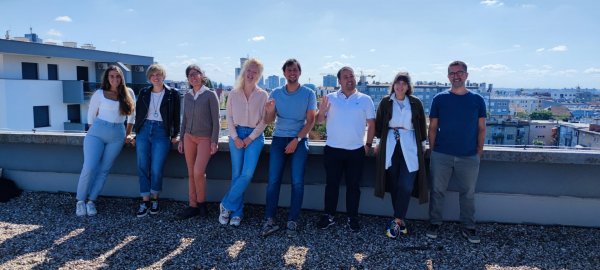
Specific objectives of the project are:
- Outline the role of the youth worker as a key figure for the management of a coworking space, identifying the skills needed and their training and development path; Indeed, we aim at enhancing animation actions and the youth work approach to support, on one hand, young entrepreneurs and new start-ups, and on the other hand, the human, social and economic development of local communities;
- Develop a cross-sector strategy to manage coworking that combines attention to “social impact” with support to the development of the start-ups present within them;
3. Propose a tool, a guide useful for organizations that want to open a coworking space (or innovate an existing one), that summarizes partners’ experiences: a collection of recommendations, tools, activities, possible assets and risks (and potential solutions to be adopted to overcome them);
4. Enhance the role and involvement of public bodies and territorial networks in the management of coworking spaces, in order to facilitate the dialogue among stakeholders, provide a broader vision of the society in which they are inserted, control the processes in their continuity, coherence and long-term impact on the territories.
Thanks to the presence of the Local Eurodesk Point, it was possible to demonstrate that coworking spaces can potentially be places where Erasmus+ mobilities are promoted as tools for the development of young people’s skills.
Download for free the outputs implemented during the project
A booklet with guidelines and indicators, for coworkers’ managers, which helps to build an open space to welcome young people and to foster the economic and social development of the host community
Short version:
A list of skills (taken from the youth work field) that coworkers and coworkers’ manager should acquire in order to be able to involve young people effectively in their spaces
An online self-assessment test for coworking’s staff, to measure the pointed youth work competences
KICK-OFF MEETING – Cinisello Balsamo, Italy
28th – 30th of October 2019
The first meeting with the partners of our CoYOUTHworking project took place from 28 to 30 October, which obtained funding of over € 200,000 from the Erasmus + Program – Strategic Partnerships for Innovation in the Youth.
CoYOUTHworking aims to create useful tools to enhance the role of young people in coworking spaces, guidelines that can be used by those who already manage a shared workspace or by those who want to start a new one.
It was a meeting full of ideas and reflections and, in addition to having retraced the stages of the project, the partners from Croatia, France, Portugal and the Netherlands, had the opportunity to visit Cofò “A place full of potential, where it is easy to imagine the birth of a real coworkers community “, the guests commented.
The operators also visited LibertHub, the multifunctional civic center of Monza including a coworking space which, like Cofò, will be involved in experimenting with the tools created by the project.
Equally interesting was the meeting with Dr. Arianna Vignati of the Design Department of the Politecnico di Milano, involved in CoYOUTHworking for the essential scientific validation of the results, who was able to explain why the design sector and that of spaces of shared work are so connected.
The meeting ended with the greetings from the Councilor for Youth Policies Daniela Maggi: “Once again the Municipality of Cinisello Balsamo promotes an innovative initiative dedicated to policies that affect young people and the labour market, continuing the discussion and collaboration with other European realities.
WORK GROUP 1 – Amsterdam, Netherlands
16th – 19th of December, 2019
The CoYOUTHworking working group met in Amsterdam from the 16th to 19th of December 2019.
The team, composed by two youth workers from each of the 5 partner organizations, has the task of developing the contents that will then flow into the final project’s outputs.
This first work group, hosted by the Dutch partner Impact Hub Amsterdam, was useful to share successful experiences in involving young people in coworking spaces in Europe, and to define together “indicators” that will guide the recognition of good practices in this area.
The identified quality standards represent the final result of a very stimulating debate that involved all the partners, each of whom was representative of different cultural contexts, but who share the same European reference framework and aims of youth work.
This is precisely the added value of the projects promoted by Erasmus +: they make it possible to “put together” the strengths of the experiences of the various participating countries, finding answers to common needs. The dialogue thus made it possible to analyze the practices promoted in France to tackle the unemployment of young people in rural areas by stimulating the creation of social cooperatives; the experiments of the Portuguese partner to create a direct link between the Youth Center and the coworking space which so far welcomes professionals of an older average age; the skills of the Dutch of creating and managing youth communities within the coworking, in such a way as to stimulate social relations, a sense of belonging and entrepreneurial skills at the same time; the ability of the Croatian organization to organize events and recreational moments that become reference points for the young people of the city; finally, the Italian experiences of collaboration between public bodies and policies and coworking spaces.
On the basis of the indicators identified and with the support of the Design Department of the Politecnico di Milano. (which is responsible for the scientific and methodological review of the project’s products), two tools were created for data collection: the first is a questionnaire aimed at young people, useful to investigate their expectations with respect to a welcoming and functional coworking space for their needs; the second tool, a grid for observing and collecting information on virtuous practices in the context of involving young people in coworking spaces (not only in Europe, but all over the world).
In the next month, the dissemination of the questionnaires at local level in the partner countries and the systematization of the information will follow.
During the meeting, there was no lack of moments of “exploring” of the territory and local business projects: the staff of Impact Hub Amsterdam guided the representatives of the organizations on a study-visit to the TQ headquarters. The space hosts the “Young Creators”, a community of young and ambitious talents who share useful information on job opportunities, debates on entrepreneurship and new technologies, training, consultancy, contacts with companies and events open to the local community.
The partners also had the opportunity to participate (also actively, through voting) in an Elevator Pitch event that inspired future initiatives by the Municipality of Cinisello Balsamo and the HubOut platform.
CoYOUTHworking begins to be shaped.
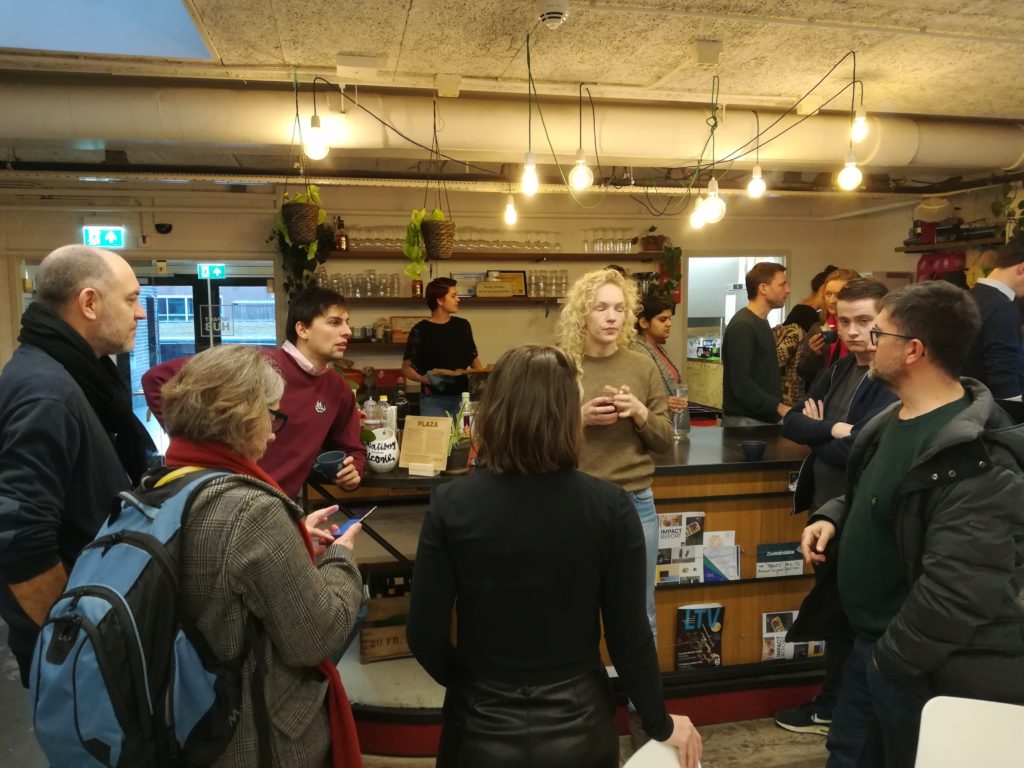
WORK GROUP 2 – Bordeaux, France
17th – 20th of February, 2020
The second CoYOUTHworking working group met in Bordeaux, France, from February 17th to 20th, 2020.
Two months after the first meeting in Amsterdam, youth workers representing the partner organizations had the opportunity to discuss and analyze the results of the surveys carried out at local level.
After agreeing on which indicators could help to evaluate good practices in the involvement of young people in coworking, in fact, the members of the working group built data collection tools (grids and questionnaires) to verify that these standards actually corresponded to the expectations and needs of young people.
Between December 2019 and February 2020, therefore, a survey was disseminated in the territories of Porto and Viseu, Amsterdam, Bordeaux, Zagreb, Cinisello Balsamo and Monza.
This survey collected a total of 208 responses from citizens mostly between the ages of 18 and 25 (52%) and 26 and 35 (45%), while people 36 and older were 4% represented.
The survey revealed, for example, a strong need on the part of young people for moments of training and in-depth study, as well as the widespread use of Linkedin to search for the services they need, and a broad interest in themes linked to the circular economy and business.
A second data collection tool took the form of a questionnaire directed to managers and community managers of coworking spaces, to verify the presence or absence of services and approaches that can facilitate the interest and inclusion of young people.
All the results, systematized thanks to the scientific support of the Politecnico di Milano – Department of Design’s professors, will be included in the final booklet.There was also no lack of study visits to shared work spaces in the city of Bordeaux.
The organizations have thus had the opportunity to know the FabLab “BEN”, in which adults, young people and children can learn to use technology in an active way, understanding the mechanisms and making it a tool available to their imagination.
Afterwards, Co-Actions staff accompanied the partners to visit Zàp – La zone à partager de Bègles, which instead acts as an incubator for social entrepreneurship projects and which, within its spaces, provides premises, printers, projectors, mini-studios, exhibition equipment, training and entertainment programs.
Finally, Sew&Laine, which includes a shared lab with textile printers, cutting plotters, and a semi-industrial digital embroidery machine, as well as a coworking space dedicated specifically to craft and creative production.
The next steps of the project, now that the scaffolding of the strategic model has been set, will consist in the improvement and translation of the booklet and in the definition of the second output of CoYOUTHworking: a competence model (inspired by ETS – A competence model for youth worker to work internationally) useful to those who work or manage coworking spaces and interested in including young people in them.
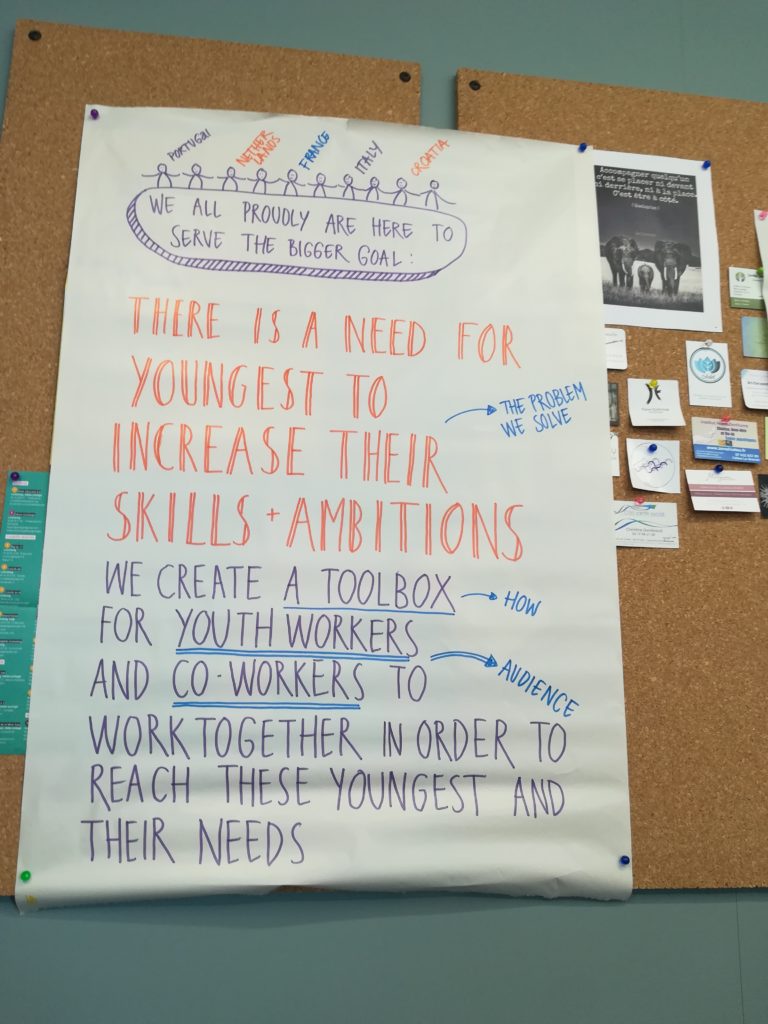
WORK GROUP 3 – Viseu, Portugal
5th – 8th of July, 2021
After more than a year in which the covid-19 pandemic forced the partners of CoYOUTHworking to develop the project online, from 5th to 8th of July the representatives of the organizations had the opportunity to meet again in Viseu, hosted by the Portuguese organization APPJuventude.
The youth workers took the opportunity to update their colleagues on the progress of activities in their respective countries, but above all to refine and finalize the second output planned within the project: a competence model for youth workers to work in a coworking space.
The proposal is inspired by the ETS model – A Competence Model for Youth Worker to Work Internationally, published by SALTO Training & Cooperation Resource Center platform, and it has been adapted to the context of shared workspaces.
The model, which is published shortly on this website (together with the guidelines for the organizational strategy), includes a list of 6 key competence, in turn declined in attitudes, knowledge, skills and behaviors, as well as an in-depth study of practices and tools useful for developing the skills themselves. This last section is a collection of experiences developed by the project partners in Portugal, Netherlands, Italy, France and Croatia.
The process of defining the output involved the representatives of the organizations even during the periods of restriction aimed at containing the contagion: in fact, there were numerous meetings and online working sessions that made it possible to continue in the development of activities, keeping together the project staff to achieve the objectives.
The meeting in Portugal, however, once again constituted an added value for the content of the project, enriched by the possibility of visiting places of interest for the themes addressed.
APPjuventude’s youth workers accompanied the colleagues to visit Pousada de Juventude de Viseu, a hostel managed by the Adamastor association with particular attention to the gathering and sociality of young people, the hosting of international initiatives and the support to actions within the non-profit sector.
The activities of hostels are closely linked to those of the adjacent Youth Centre, which involves local and European volunteers in its coordination, and which CoYOUTHworking is helping to connect with the nearby coworking space.
The participating youth workers will meet again in Zagreb, Croatia, in september 2020, to refine and officialy launch all projects outputs through the dedicated website.
WORK GROUP 4 – Zagreb, Croatia
20th – 23th of September, 2021
The fourth and final meeting of the work group on CoYOUTHworking, hosted by the organization Nest01 – HUB385, took place from the 20th to the 23rd September in Zagabria, Croatia.
The main objective of the meeting was to finalize the project’s outputs. In particular, the partners worked on the creation of a self-assessment questionnaire addressed to coworking managers, useful for measuring the ability to include young people within the spaces, which will be published shortly on the website www.coyouthworking.eu
The questionnaire represents a starting point to investigate which practices can make a shared workspace more attractive for young people, bringing an added value to the development of the local community. Experiences and tips that interested operators can find in the booklet “A strategic organizational model to promote the social impact of youth participation and entrepreneurship in and out of a coworking space” and in “A skills model for youth workers in coworking spaces “, which can be downloaded for free on the project website.
During the meeting, the partners also worked on the content and recording of the final project video, a synthesis of the outcomes developed during the work groups. A professional video maker is in fact taking care of the direction and editing of the final film.
The meeting ended with a study-visit to the “Radiona” makerspace, born in 2011 with the aim of promoting the culture of “open source” and self-production, as well as connecting art, science and technology ( especially in STEAM). The association aims to create new networks of realities that deal with DIY (do-it-yourself) and DIWO (do-it-with-others) culture through an interdisciplinary approach based on community building, participation, cohesion, sharing of knowledge and co-planning.
MULTIPLIER EVENT – Zagreb, Croatia
23th of September, 2021
On the 23 of September, HUB385 hosted the very first multiplier event as a part of their coYOUTHworking journey.
We hosted a short interactive presentation, showing our audience the aims and the outcomes of the project. After the presentation, we had an informal networking gathering to share ideas and experiences about the project with HUB385 co-workers. For us, it was important to hear the voices of our co-workers and to take in their feedback.
Among the audience, we had youth workers, big and small entrepreneurs, freelancers, digital nomads, and Erasmus + interested audience who took the opportunity to greet and meet all the coYOUTHworking partners that participated in the event. We also had a guest from a young start-up called Rent a Local – a small company that helps digital nomads to start their business in Croatia.
We shared the information about the event via our social media and had a lot of audience that was interested in reading our booklets. As a result, more than 60 booklets were sent to start up incubator Trokut in Šibenik, and about 40 booklets found their way to our partner hub HUB387 in Sarajevo, Bosnia and Herzegovina.
As a part of the presentation itself, hosted by the project’s organizator Massimo Capano from the Municipality of Cinisello Balsamo, we represented the project and after the formal part of the presentation, we hosted an informal Q&A session over coffee and breakfast.
The coworking era is taking an enormous growth in Croatia so the timing to present new ideas about opening coworking spaces for youth was just perfect.
MULTIPLIER EVENT – Captieux, France
10th September, 2021
On the 10th of September, on the occasion of the 10th birthday of Co-actions in Captieux, the French multiplier event of the final results of CoYOUTHworking took place.
It was a panel discussion on Youth, work and social innovation facilitated by Xavier Ridon, a French journalist expert in social policy, whose speakers were:
- Noémie Escortell project manager of Coyouthworking project for Co-actions;
- Aurélie Lagarde, youth worker who manages a youth cooperative of activities;
- Léa Lima, a researcher expert on economic sociology.
The audience of the event was represented by several organisations of social and solidarity economy, organisations of youth work, young entrepreneurs, coworking spaces organisations, Cooperative Tiers-Lieux (regional network of coworking spaces) and also public bodies like Regional Council (councillor and administrative staff).
The program included:
- a general presentation of CoYOUTHworking, of the needs and reflections that originated the project idea, and of the participating organizations;
- an in-depth description of the outputs and consultation methods; in addition, some copies of the booklet and the skills model translated into French were shown to the participants;
- a discussion on the role of the youth worker in developing the entrepreneurial skills of young people.
- Aurélie Lagarde and Léa Lima also presented as a youth worker and a researcher their analysis on how entrepreneurship participating projects created by and with young people can lead to social innovation in the territories.
It was very interesting to see that this event was also a big inspiration for other organizations and members to engage themselves in innovative and European Projects such as ErasmusPlus.
MULTIPLIER EVENT – Matera, Italy
7th – 9th of October, 2021
On 9th October, on the occasion of the opening of the new HubOut space in Matera, the launch event of the final results of CoYOUTHworking took place. It was an interactive workshop managed in collaboration with the partners of the European project, who enriched the meeting with contributions related to their specific experiences. The audience of the event was mainly represented by the youth startups participating in the HubOut training course and by the partner organizations of the project: Oltrespazio, which manages the Cofò coworking space; the CSBNO, which it promotes within the Makers Lab library spaces; the Municipality of Matera, responsible for the opening of the new HubOut; Basilicata Creativa, Generazione Lucana and Comincenter, who accompany and support the entrepreneurial projects of young people in the area. In addition, youth workers from organizations active in the Erasmus + framework were added.
The program included:
- a general presentation of CoYOUTHworking, of the needs and reflections that originated the project idea, and of the participating organizations;
- a specific session on the role of the youth worker in developing the entrepreneurial skills of young people, as well as on the European regulatory framework and on the opportunities financed by Erasmus + aimed at youth workers;
- an in-depth study on the theme of shared workspaces and on the role of the community manager as a facilitator of interactions between coworking and the local communities of young people (by the representatives of ImpactHub);
- an in-depth description of the outputs and consultation methods; in addition, copies of the booklet and the skills model translated into Italian were distributed to the participants;
- a presentation of some practices presented in the outputs, in particular the Enterecomp Lab Junior (which provides for the accompaniment of high school students in the development of an entrepreneurial idea, in the form of a simulation) and of the participatory processes that may be useful for co-planning a shared workspace;
The workshop ended with a World Cafè activity: the participants were divided into discussion groups charged with reflecting on 4 different themes and summarizing the conclusions on posters; for each of the topics, each group had 5 minutes at their disposal to discuss and report the contributions in writing. At the end of the available minutes, the results were presented in front of the political decision-makers present, with the support of the CoYOUTHworking partners who accompanied the process.
The 4 points for thoughts were:
- What could make a shared workspace more “attractive” for young people (in terms of activities, events, key figures, furnishings / design of the space….)?
Here amarged the interest of young people in finding a “digital” and technological space, as well as a non-formal approach to the events and activities that would be promoted, and proposals for intercultural encounter and exchange.
- What connections (with which external actors) do you expect to find a shared workspace?
It emphasizes the search for “expert” figures who can support young entrepreneurs, but also the need to find customers and partners.
- Can a public body promote the spread of an “entrepreneurial culture” in the community? If so, how?
The reflections focused both on the construction of a long-term strategy and on practical activities such as the involvement of “business angels”, the proposal of tenders and funding, as well as the provision of legal assistance for the start-up phase. of startups.
- How can shared workspaces benefit the local community?
The key words highlighted in the conclusions were: network, economic benefits and promotion of more sustainable ways of working, innovation and creativity, as well as the meeting of different types of people (with different cultural, social, economic and educational backgroups).
At the end of the workshop, all the reflections and suggestions were symbolically “delivered” to the representatives of the Municipality of Matera who are responsible for developing the new HubOut coworking space.
Proposing the launch of the CoYOUTHworking results during the opening event of a new shared workplace made it possible to highlight the connection between the theme of coworking and that of youth work and youth policies, highlighting the benefits both for those in charge to manage the former, which for young people and the local community.
MULTIPLIER EVENT – Amsterdam, Netherlands
28th of October, 2021
On 28th October, Impact Hub Amsterdam organized their multiplier event. We invited our network of stakeholders, cowork members, entrepreneurs and youth workers.
The combination of these three groups made the event a success, because the collaboration could immediately start. Evelien Janson (Community Manager at IH Ams) and Rutger de Rijk (Project Manager at IH AMS) gave a presentation of the partnership and the project results. It was very inspiring to share how the collaboration has started and to reflect on the lessons that we learned during the process.
It was very nice to see that this talk was also a big inspiration for other youth workers and members to engage themselves in European Programme as Erasmus+.
We showcased the video’s with the tips and went into an interactive Q&A and discussion.We shared the digital version of the booklet and pointed all the visitors to use the online questionnaire.
We closed the event with some informal drinks in which we stimulated the different professionals to mingle and to discuss the tips and next steps.
MULTIPLIER EVENT – Lisbon, Portugal
30th of Novembre, 2021
On the 30th of November, the APPJuventude – Associação Portuguesa de Profissionais de Juventude, presented in Lisbon Youth Centre the final results of the CoYOUTHworking project, financed by Erasmus+ Strategic partnership for Innovation with the number 2019-2-IT03-KA205-016787.
It was a panel discussion on Youth, work and social innovation facilitated by Hilario Matos, president of APPJuventude, whose speakers were:
- Mateusz Hoffmann, Dyppal Network
- Fernando Cardoso, Youth Worker
- Catarina, youth worker from the LifeShaker association who manages a youth centre
- Carlos Santos, Social Innovation Center – Human Power Hub
The audience of the event was represented by several organisations of social and solidarity economy, organisations of youth work, youth workers, active youngersters, young entrepreneurs, coworking spaces organisations, public bodies: IPDJ (Instituto Português do Desporto e Juventude) national and regional level and municipalities.
The program included:
- a general presentation of CoYOUTHworking, of the needs and reflections that originated the project idea, and of the participating organizations;
- an in-depth description of the outputs and consultation methods; in addition, some copies of the booklet and the skills model translated into Portuguese were shown to the participants;
- a discussion on the role of the youth worker in developing the entrepreneurial skills of young people;
- a discussion on the kind of spaces available for young people and youth workers.
Final meeting
With a final evaluation meeting, the CoYOUTHworking project ended in February, which has engaged the Municipality of Cinisello Balsamo in the role of coordinator for the last 2 and a half years.
It was a learning process for our institution and for all the organizations involved, which had an impact on different levels.In particular, it emerged that the operators who contributed to the production of the outputs developed greater skills:
- in the field of youth work;
- on the theme of shared workspaces;
- as part of the Erasmus + program and project management;
- in multicultural team work;
- in the organization and implementation of activities for the inclusion and empowerment of young people.
Thanks to the working groups and the production of the outputs, the partners defined a shared language and created the basis for the development of future actions on this or other issues that directly involve them.
They got familiar with the tools created during the process and the results of the comparison with other examples of good practices, improving their organizational structure and the animation offer. This will have a positive impact both on young people hosted by coworking, and from the point of view of recognition by the community as open places for inclusion and promotion of work.
Through the involvement of other structures in the territories to which they belong (especially in the data collection phase and in the promotion activities), the promoters had the opportunity to strengthen local and regional networks, getting to know better their projects, operators, approaches and methodologies. The number of associated organizations / stakeholders involved in the project was 140: mostly were Municipalities, a significant figure if we consider that one of the project objectives was precisely to enhance the role of public bodies in the management of coworking spaces and to increase its impact in terms of inclusion and local development; a satisfactory number of youth work organizations was also reached, which made it possible to underline the possible connection between coworking spaces and youth work figures; equally significant was the number of startups involved, which were offered a new perspective on the spaces that host them and their potential, and the potential of other coworking spaces, which will be able to take inspiration from the guidelines produced.
As far as the Municipality of Cinisello Balsamo is concerned, the project has helped to strengthen some networks already started; it also represented the first experience in the coordination role in a Key Action 2 initiative, helping to develop skills that were useful for presenting new proposals in the same area, both funded between 2021 and 2022.
For Co-Actions, it was an opportunity to start a new collaboration with the French National Agency for the regeneration of a new space, which is based on the results of the outputs. Based on the experience with CoYOUTHworking, ImpactHub has proposed two new projects under Erasmus + – Key Action 2, both approved in 2021. Again on the basis of the final evaluation conducted with the project partners, CoYOUTHworking allowed stakeholders to develop greater awareness of the potential and methodologies of youth work, as well as the role that the youth worker could have within a coworking space; There was also a reflection on the needs of the youth worker as a separate professional category, with its own needs and learning approaches, to be integrated with the staff of the the work area. Moreover, they are more motivated to implement a greater number of activities aimed at young people within their spaces.
Local events involved a total of 280 people.More than 600 young people (mainly startuppers) were involved in the activities of the partners based on the results of the project.
Cinisello Balsamo is a Municipality placed in the Metropolitan area of Milano, with about 75.723 inhabitants. The Municipality has been promoted for years paths aimed at enhance the active participation of the citizens both to the social life and to the choices made by the local policy-makers, by acting strictly in collaboration with different youth organizations for the engagement of the young people within projects, initiatives and activities targeted to them.
The Municipality recognizes the importance of involving youth, students and young workers as proactive players within the social and cultural field, as well as the value of the youth and cultural organizations as an opportunity of local development and enrichment.
For this reason, youth represents a central player also for the Europe and Projects Department, which as been constituted at the beginning of 2020 in continuity with a well-established experience in programming and managing projects addressed to the new generations, at the local, national and European level. The numerous proposals funded by Erasmus+ (for the learning opportunities abroad), Europe for Citizens (for the development of active citizenship), European Solidarity Corps (for the promotion of the youth volunteering) have been involved hundreds of young people within the last 15 years.
The aim of the European and Projects Department is to further implement the participation of the City in European, National, Local and Regional fundings for the local development, with a specific focus on the promotion of social cohesion (social capital) as well as on the promotion of social and professional competences (human capital).
The European programmes are thus tools shared among all the city departments in order to offer new organizational models for the development of sustainable scenarios of culture and citizenship, to make the territory “appealing” for the young resources, by responding to their educational, training, socializing and professional needs.
The Departments includes the Eurodesk service, for the promotion of the learning, working and volunteering opportunities abroad funded by the European Commission.
Finally, the Department promotes projects strongly addressed to the networking, to build and share resources capable of supporting both actions of active citizenship and for the development of the sense of initiative and entrepreneurship competence of young people. These are included in the HubOut – Social Innovation Lab, which has been created in order to support the young talent as a resource and starting point for the local development.
The Portuguese Association of Youth Professionals (APPJUVENTUDE) was created on January 8, 2018, as a result of a process with more than two years, where several youth professionals workers, in the various forums and activities of the sector, affirmed the need of its creation.
APPJUVENTUDE is made up of youth professionals workers, who belong to various national organizations, such as Municipalities, Public Institutes and Associations/NGOs, with a lot of experience in youth projects and specially Erasmus+ projects.
APPJUVENTUDE has as its mission:
a) Strengthen and dignify youth professionals workers in Portugal, as well as their recognition in the Portuguese Republic and in organizations representing young people;
b) Propose legislation, as well as actions to help regulate the youth sector and promote the image of the youth professional;
c) Promote non-formal education, as well as processes of social innovation, that promote the active participation of young people in the preservation of a democratic society;
d) To favor national and international cooperation and networking actions, as well as the development of educational mechanisms and tools among youth professionals.
The APPJUVENTUDE has begun a series of training activities for youth workers, in partnership with the IPDJ (National Youth Agency) and IEFP (National Employment Agency). At the moment we are developing a MOOC, in Portuguese, about youth entrepreneurship.
APPJUVENTUDE has set up sectoral working groups to meet the needs of youth workers. In this context it is important to highlight the working group with technicians who work directly in the area of youth entrepreneurship, at the level of business incubators and coworking spaces.
Born in 2008, Co-actions is a CAE, Cooperative of Activity and Employment, located in the South West of France, in Nouvelle-Aquitaine region. The cooperative gathers project leaders and young entrepreneurs who want to create their own job in a collective framework in social economy.
Co-Actions supports unemployed people, project leaders and young entrepreneurs in experimenting the viability of their own business project with safety, freedom, solidarity. As members of the cooperative, they are invited to take part in the life of the social enterprise. This model is a source of capacity building for young people and for their potential of creativity and innovation. There are currently 96 entrepreneurs in the cooperative.
Each entrepreneur gives a financial participation to pay for collective resources (coaches, accountancy, training, communication, shared working spaces etc.). As a cooperative of collective interest, Coactions develops projects and provide support to the entrepreneurs in all the region of Nouvelle-Aquitaine and works with both public and private organizations as partners for local development. Since 2013, to support his entrepreneurs, Co-actions create different coworking spaces to allow the entrepreneurs to have sharing offices and to meet partners, customers, colleagues.
Co-actions created:
–> A coworking space in Hagetmau, a small village in the south of the region, in a rural zone. This coworking space is located in the office of a large non for profit organization. The coworkers are local entrepreneurs and a small publishing house of poetry. a coworking space in La Réole another village in a rural zone. The coworking space is open for all the entrepreneurs of this region and the remote workers (the employees that are allowed to work at home some days in a week).
–> A coworking space in Bègles a Small city close to Bordeaux in a sharing building with a grocery cooperative and an NGO which develop projects for and with young people with autism spectrum disorders (ASDs). In all these spaces, the cooperative organizes some information meetings to speak about the entrepreneurship in a cooperative framework, training sessions, or informal meeting like breakfast between entrepreneurs and local partners on a monthly basis.
The trainings are for example:
–> How to run a business in a collective framework
–> Communication strategy
–> Sustainable business models
Since 2016, through partnerships with organisations of social innovation, the coop supports entrepreneurs in providing new tools, new concepts and innovative practices. As an example, Co-actions works with Sew&Laine, an innovative fab lab for textile projects.
Moreover, at international level, Co-actions is involved since 2016 in a cooperation project with organizations of social economy from Quebec, and in particular POLECN. The objectives of the cooperation are to share best practices about entrepreneurship in social economy and to analyse how the coworking spaces, Fab Lab and others shared working spaces could be sources of social innovation and cooperation. The cooperation also aims to transfer innovative model of the French Cooperative of Activity and Employment to the region of Quebec.
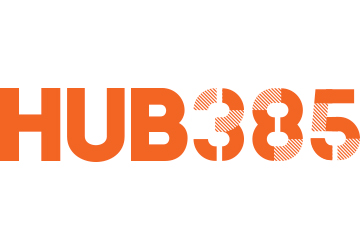
Nest 01 is the home of young developers, makers, creatives and entrepreneurs.
It promotes innovation, collaboration and knowledge sharing. Together with a community of experts and mentors they host workshops, master classes, organize STEM and communication events, meetups and hackathons.
It is a coworking space, development center and networking platform. In Nest 01 they discover, support and empower talented young people, help them build their products, their companies and their dreams.
Nest 01 opened its doors at the end of March 2016 with its coworking space offer.
Positioned in one of the old textile factory buildings, it offered something different on the regular office rental market and it immediately attracted first residents. In April Nest 01 started to organize events – either only for Nest 01 residents or for wider audiences. At the same time – their venue soon became popular for other organizers (press conferences, workshops, trainings).
They have all advantages of modern technology (fastest internet links, 3D printers, security cameras coverage, beamers and sound equipment), but they also have a cozy look, old style couches and armchairs, warm colors, wooden desks and we created a home for our residents and guests.
Being different than regular office rentals offers on the Croatian market today – Nest 01 coworking space created an immediate buzz on the market.
In late 2018 it was acquired by an international coworking and coliving Rent 24.
They have three cofounders, 5 members of the senior staff and 4 members of the junior staff. In total there are over 40 companies renting space in Nest that is about 250 individuals.
Nest 01 has conducted many projects, especially in education, research and online communication.
Additionally, Nest 01 has been selected by the European Commission as one of the leading DIHs in the region and has been selected by the national agencies to implement a project based on SME support through entrepreneurial support institutions such as Nest 01.
Impact Hub Amsterdam is part of the fast-growing global Impact Hub network of impact entrepreneurs and innovators with more than 16,000 members in over 100 cities around the world.
To make change happen, they facilitate entrepreneurial solutions to society’s biggest challenges. They give access to a valuable network, as well as business expertise, create resources and capital, organize events, host a collaborative working space, and run a series of accelerator programs. They provide almost everything to move entrepreneurial initiatives for a better world forward. From our home at KIT – the Royal Tropical Institute – we welcome 10,000 guests, host more than 250 impact events and accelerate more than 150 enterprises each year.
Since 2008, they have helped more than a thousand entrepreneurs to start, grow and scale their impact business.
With over 10 years’ experience in building ecosystems around social entrepreneurships they have learned a lot of lessons.
They are focusing on the next generation for 2 years by starting the Young Impactmakers community.
With this sub-community we involve local young changemakers in the work of impact entrepreneurship and social innovation. We host different workshops, bootcamps and offer coworking space to this next generation.
Every month around 100 people (pre-COVID19) come together to see how they can contribute and work on societal issues through entrepreneurship. After meeting each other they offer them coworking memberships where they can work on their business and projects.
Cinisello Balsamo Municipality 🇮🇹
cinisellobalsamo@eurodesk.eu
Nest01 🇭🇷
ivana.radic505@gmail.com
ImpactHub Amsterdam 🇳🇱
amsterdam@impacthub.net
APPJuventude 🇵🇹
info@appjuventude.pt
Co-Actions 🇫🇷
nescortell@co-actions.coop
